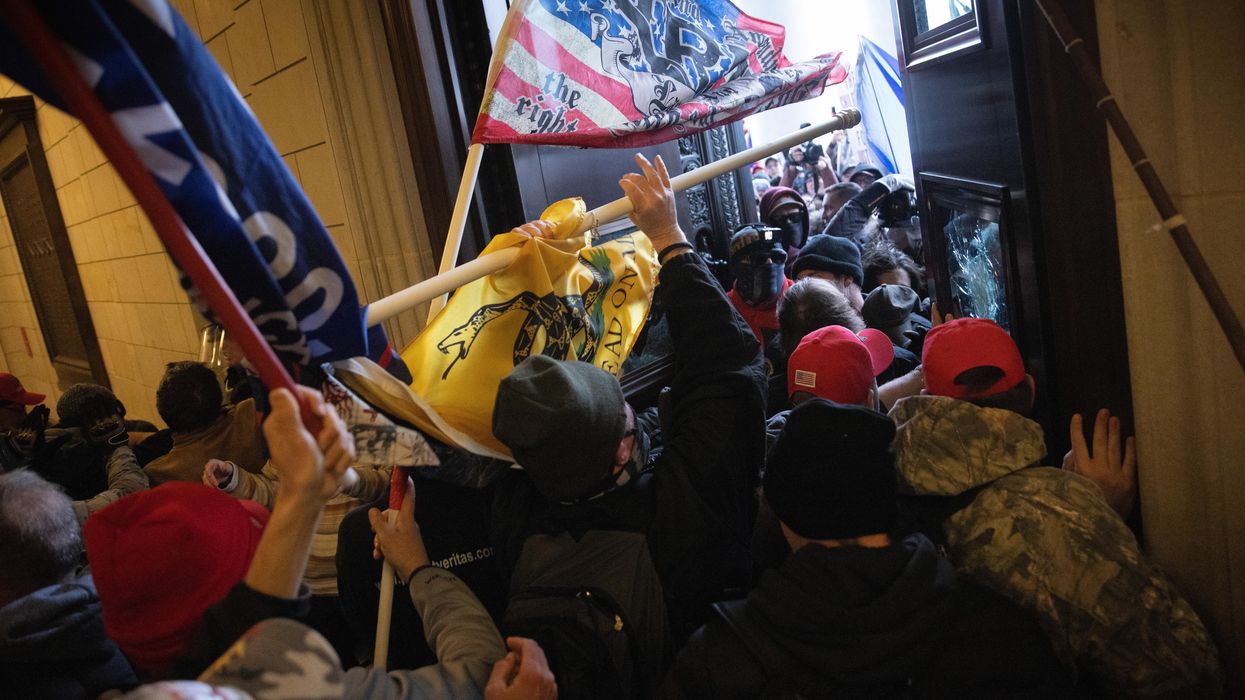Jamison is a retired attorney.
In December and January, Americans may face the gravest threat to the nation since the eve of the Civil War in April 1861.
A recent PRRI survey shows that about a quarter of Republicans agree that if Donald Trump “is not confirmed as the winner of the 2024 election, he should declare the results invalid and do whatever it takes to assume his rightful place as president.” Based on the Republican vote for president in 2020, as many as 15 million to 18 million people apparently would support a coup, with many more probably unlikely to condemn their actions. We must presume the armed component of those millions of people have been organizing to try to seize power if their candidate loses.
Is the nation prepared for this?
The Secret Service has designated Jan. 6 and Jan. 20, 2025 as a National Special Security Event. This enables collaboration between federal, state and local agencies in the development and implementation of a comprehensive and integrated security plan to ensure the safety and security of events taking place those days and their participants. The Secret Service is forming, or by now has formed, a steering committee of senior representatives of the relevant agencies. Is it enough?
There is a relatively small contingent of the National Guard in Washington, D.C., that is available for protection of the Capitol. The mayor can have the president activate this force to aid in suppressing such violence and enforcing the laws. But what if a much larger force is needed to suppress an armed insurrection?
Under the Constitution, Congress has the power to call forth the “militia” to suppress an insurrection. The Insurrection Act was adopted under this authority. That law allows the president to use the military in a state when a rebellion makes “it impracticable to enforce the laws of the United States in any State by the ordinary course of judicial proceedings” and in certain other instances. On its face, the act appears to be limited to insurrection in a “state.”
D.C. is not a state, so there may be a question about the law’s availability there. The 23rd Amendment to the Constitution does state, however, that D.C. shall have electors for president and vice president who “shall be considered, for the purposes of the election of the President and Vice President, to be electors appointed by a State.” Does that amendment bring D.C. within the jurisdiction of theInsurrection Act?
The new Congress is scheduled to convene on Jan. 3. Sad to say, but unless a sufficient number of responsible senators and representatives are elected, Congress may delay or not take action that may be needed immediately to quell rebellion because many lawmakers could be in sympathy with, if not in active support of, a rebellion. The president presumably would apply the Insurrection Act to D.C. anyway, but elements of the 15 million to 18 million may try to enjoin him under the posse comitatus law from using additional federal forces there.
Also, if that law were violated, the president may have immunity, but what about others in the chain of command? Will they balk or delay because of a perceived unlawful order that they feel could subject them to criminal liability? What about disloyalty in the chain of command? Is the government prepared for these scenarios? The confusion and delay of Jan. 6, 2021, must not be repeated.
The Insurrection Act presumably will be available for rebellions against or in state capitols. But a state legislature and governor could collaborate with local election officials and others who disrupt, delay or prevent certification of the vote. They would then declare an “extraordinary and catastrophic” failed state election and submit their own slate of presidential electors for their preferred candidate despite the actual popular vote for the other candidate. The recently enacted Electoral Count Reform Act allows a prompt court challenge to such misconduct, with a prompt appeal of a court’s ruling to the Supreme Court. But the current composition and recent rulings of the Supreme Court favorable to the former president may embolden bad actors.
The prospect of Section 2 of the 14th Amendment being enforced in such litigation, however, could give them pause. Presidential electors for each state consist of two for each senator and additional electors equal to the number of House members to which the state is entitled based on its population. Section 2 penalizes a state that denies the right to vote to qualified 21-year-old male voters. (Subsequent Constitutional amendments authorized women and 18-year-olds to vote.)
The penalty can reduce the number of the state’s representatives in the House. A state that loses representatives will lose electors who could make the difference in which candidate obtains an electoral majority. Could a state lose all of its representatives, lose all of its electors from the House and lose its right to a single vote in the House in case of an electoral deadlock in which no candidate has a majority of the electoral votes? Such deadlocks are to be decided by a majority of the votes of each state represented in the House, with each state having a single vote. This currently favors red states. Possible use of Section 2 of the 14th Amendment in Electoral Count Reform Act litigation should be evaluated now.
As a nation we best prepare ourselves. As famously stated by Benjamin Franklin, “By failing to prepare you are preparing to fail.”



















 From left to right: Gabriel Cardona-Fox, Bud Branch, Joe Concienne
From left to right: Gabriel Cardona-Fox, Bud Branch, Joe Concienne 
Trump & Hegseth gave Mark Kelly a huge 2028 gift